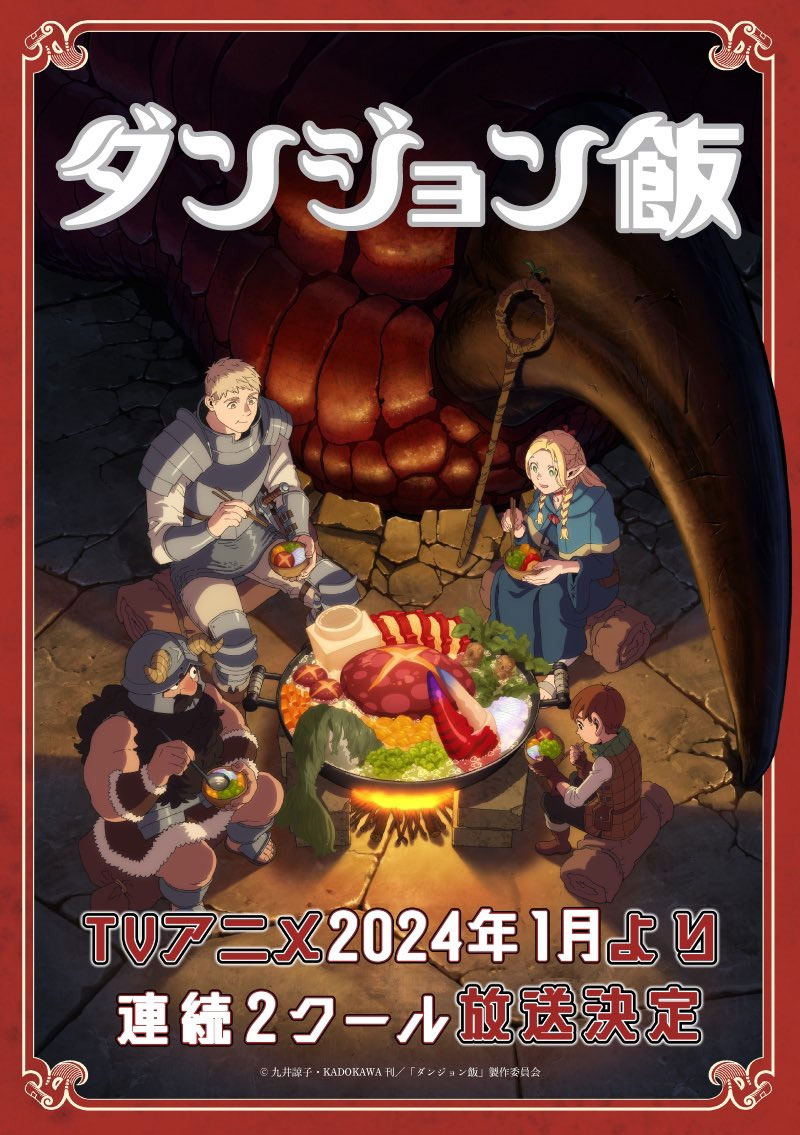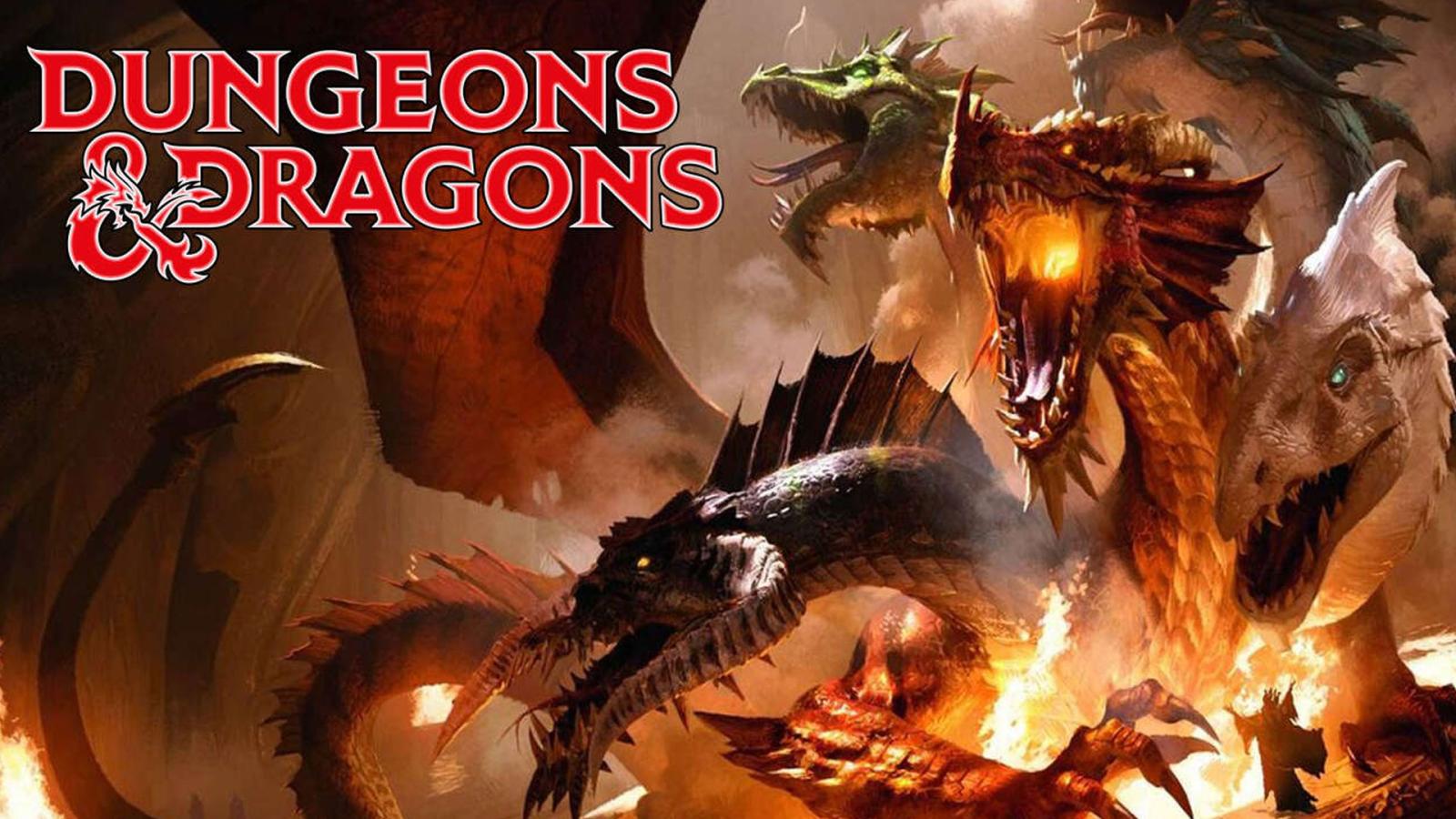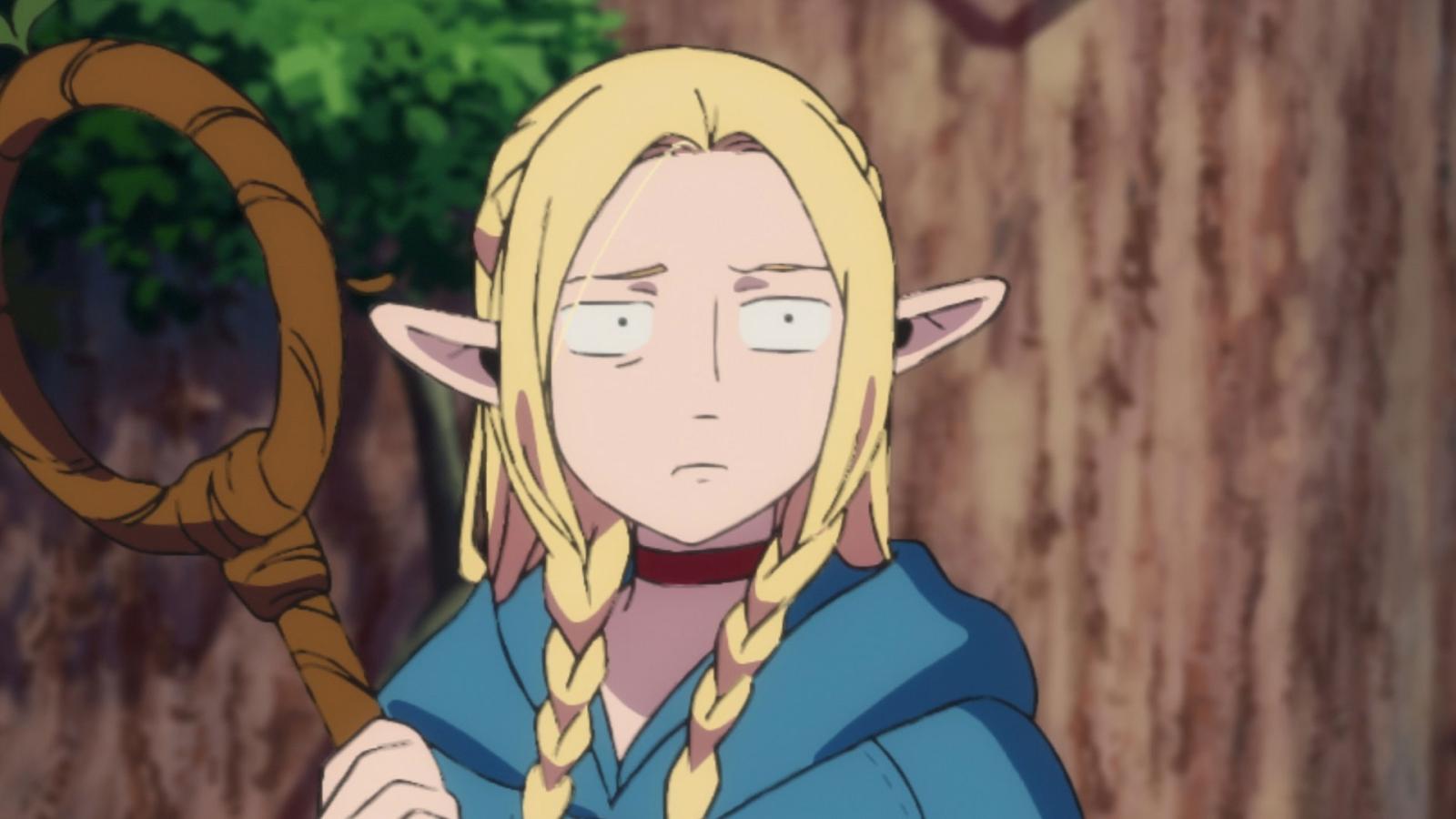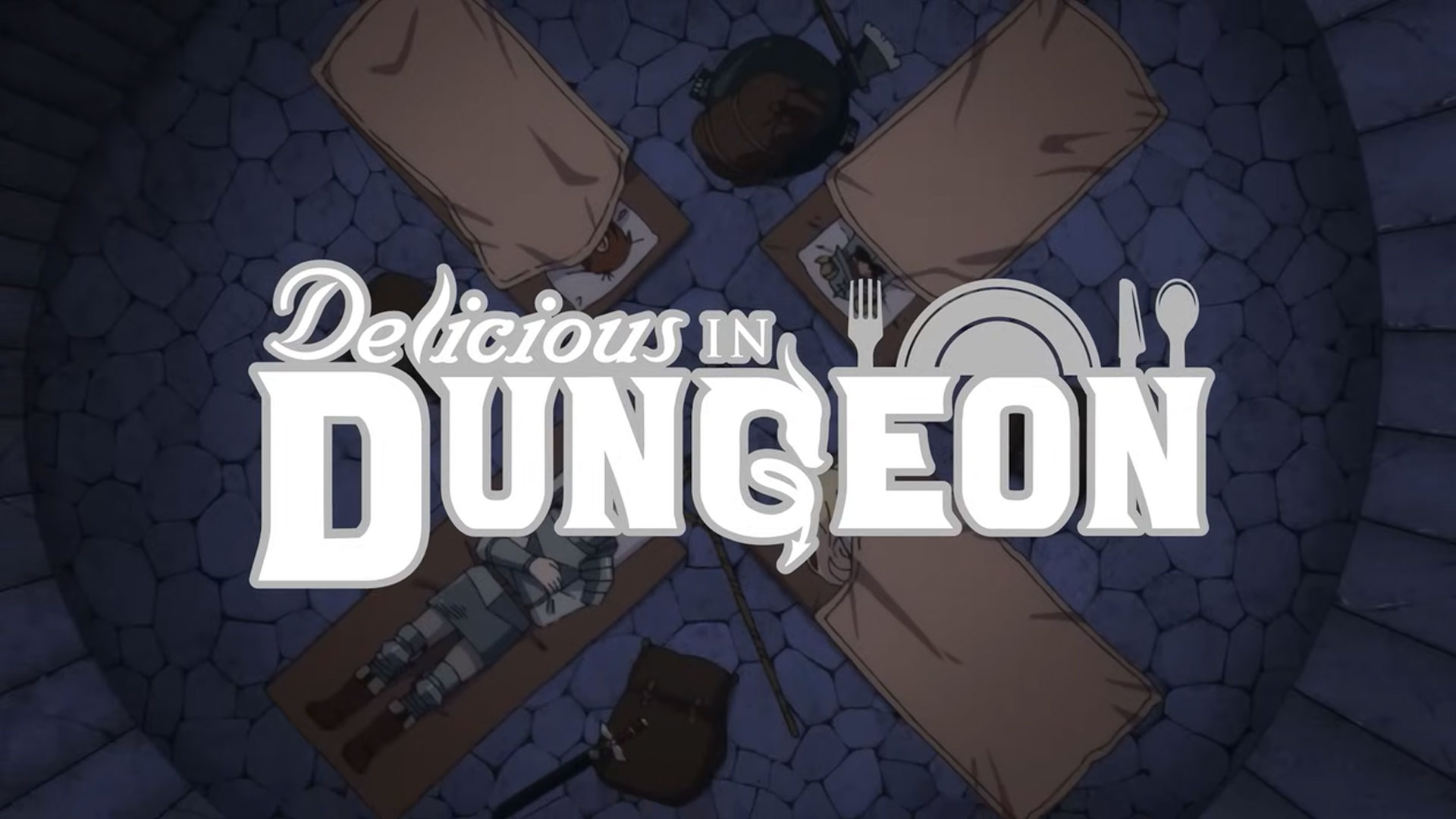Is the English title good?
Summary:
- There are fans who don’t like the English translation of the series’ name.
- Delicious in Dungeon is a wordplay on Dungeons and Dragons.
- Some are still unsatisfied because the name makes no grammatical sense.
The Delicious in Dungeon (Dungeon Meshi) fandom seems to have been divided into two teams: one uses the English name of the series, and the other prefers calling it by its Japanese title. But why is it so?
Literal translation

“Dungeon Meshi” or “ダンジョン飯” can be literally translated as “dungeon food” or “dungeon meal”. That's why there are quite a number of fans who don’t understand why the name wasn’t translated literally, and why the word “delicious” appeared in the title.
Of course, no one is outraged by this because the word “delicious” makes a lot of sense in this context as it’s almost always used when we speak about food. And yet, some fans prefer saying Dungeon Meshi and leave the name as it is.
Curious wordplay

The most clever thing about the translation is that it’s an allusion to Dungeons & Dragons, which is often shortened to DnD. The series resembles this game a lot, since it also has monsters, dungeons and RPG elements. So this wordplay is very appropriate.
It’s not only an English thing. Spanish fans mention that the name of the anime in their language is “Tragones y Mazmorras,” where “tragones” means someone who eats a lot; while Dungeon and Dragons is called “Dragones y Mazmorras.” So the wordplay exists in other languages, too.
It doesn’t make sense

Still, there are some fans who dislike the English translation and think that it makes no grammatical sense, just like “Attack on Titan”, for example. They have a point, of course, but we think that the wordplay is more important than grammatical accuracy in this particular case.
But unlike Attack on Titan, Delicious in Dungeon will hardly become a translation error, since it’s said that the author of the manga has approved of the English title herself. That’s also why there are so many fans who see nothing wrong with the name.
For now it looks like both names, the English and the Japanese ones, are very common in the fandom and it all depends on personal preference.
Some fans feel very anxious and unsure when they have to deal with a foreign language, that’s why they are nervous about saying “Dungeon Meshi” out loud while discussing the series with someone.
That’s why they stick with “Delicious in Dungeon” in oral conversations and use the Japanese name when they’re having an online discourse.

